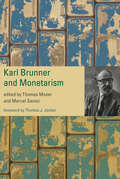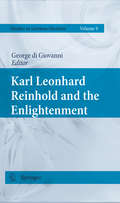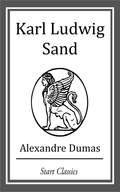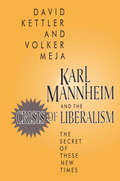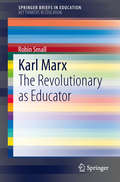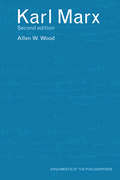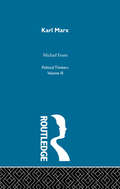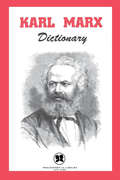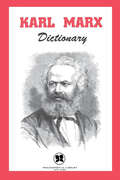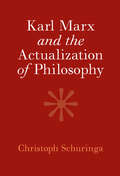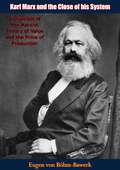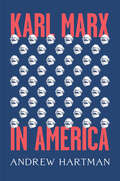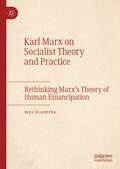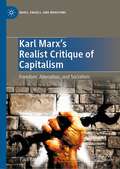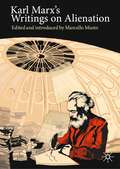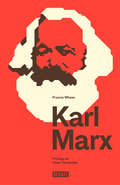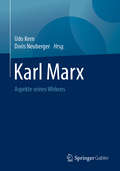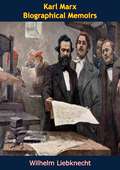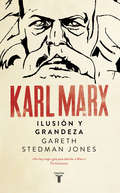- Table View
- List View
Karl Brunner and Monetarism
by Thomas Moser and Marcel SaviozEconomists consider the legacy of Karl Brunner&’s monetarism and its influence on current debates over monetary policy. Monetarism emerged in the 1950s and 1960s as a school of economic thought that questioned certain tenets of Keynesianism. Emphasizing the monetary nature of inflation and the responsibility of central banks for price stability, monetarism held sway in the inflation-plagued 1970s, but saw its influence begin to decline in the 1980s. Although Milton Friedman is the economist most closely associated with the development of monetarism, it was Karl Brunner (1916–1989) who introduced the term into the current vocabulary of economics and shaped its meaning. In this volume, leading economists—many of them Brunner&’s friends and former colleagues—consider the influence of Brunner&’s monetarism on current debates over monetary policy. Some contributors were participants in debates between Keynesians and monetarists; others analyze specific aspects of monetarism as theorized by Brunner and his close collaborator Allan Meltzer, or address its influence on US and European monetary policy. Others take the opportunity to examine Brunner-Meltzer monetarism through the lens of contemporary macroeconomics and monetary models. The book grows out of a symposium that marked the 100th anniversary of Brunner&’s birth. ContributorsErnst Baltensperger, Michael D. Bordo, Pierrick Clerc, Alex Cukierman, Michel De Vroey, James Forder, Benjamin M. Friedman, Kevin D. Hoover, Thomas J. Jordan, David Laidler, Allan H. Meltzer, Thomas Moser, Edward Nelson, Juan Pablo Nicolini, Charles I. Plosser, Kenneth Rogoff, Marcel Savioz, Jürgen von Hagen, Stephen Williamson
Karl Bühlers Krise der Psychologie
by Janette FriedrichIm Mittelpunkt des Bandes steht Karl Bühlers 1927 veröffentlichte Schrift zur „Krise der Psychologie“. Bühler setzt sich darin mit den verschiedenen Ansätzen zur Erforschung psychologischer Phänomene auseinander. Seine Analyse der sich seit Ende des 19. Jahrhunderts als eigenständige Disziplin konstituierenden Psychologie nehmen die Autoren zum Ausgangspunkt, um die „Positionen, Bezüge und Kontroversen im Wien der 1920er/30er Jahre“ zu beleuchten. Dabei stellen sie bisher wenig beachtete theoretische Positionen Karl Bühlers vor und präsentieren neue historische Fakten zu seiner Schaffenszeit an der Wiener Universität.Die Themen der Beiträge reichen vom Neubeginn der Wiener Philosophie mit der Besetzung der drei Lehrstühle im Jahre 1922 über die Forschungen zum Film unter Leitung von Karl Bühler in den 1930er Jahren bis hin zu neuen Erkenntnissen der NS-Provenienzforschung zur Bibliothek von Karl und Charlotte Bühler. Die Verbindungen zwischen Bühlers Krisenanalyse und dem Forschungsprogramm der Brentanoschule werden aufgezeigt, sein Interesse am Medienbegriff des Psychologen Fritz Heider ebenso detailreich diskutiert wie Bühlers in den 1930er Jahren begonnenes Projekt einer Lebenspsychologie und einer Sematologie als allgemeine Zeichentheorie. Dabei beantworten die Autoren die Frage nach der Aktualität seines Denkens ganz unterschiedlich.Mit der Erschließung neuer Quellen und der Rekonstruktion historischer Kontexte sowie durch komparative Textstudien leisten die Autoren einen originellen Beitrag zur Wissenschaftsgeschichte, insbesondere zur Geschichte der Psychologie und der Philosophie wie auch zur Institutionsgeschichte der Wiener Universität am Anfang des 20. Jahrhunderts. Der Band richtet sich an Spezialisten auf diesen Gebieten, aber auch an Psychologen, Sprachwissenschaftler, Erziehungswissenschaftler und Philosophen.
Karl Leonhard Reinhold and the Enlightenment
by George Di GiovanniKarl Leonhard Reinhold (1757-1823) is a complex figure of the late German Enlightenment. Sometime Catholic priest and active Mason even when still a cleric in Vienna; early disciple of Kant and the first to try to reform the Critique of Reason; influential teacher and prolific author; astute commentator on the immediate post-Kantian scene; and at all times convinced propagandist of the Enlightenment--in all these roles Reinhold reflected his age but also tested the limits of the values that had inspired it. This collection of essays, originally presented at an international workshop held in Montreal in 2007, conveys this multifaceted figure of Reinhold in all its details. In the four themes that run across the contributions--the historicity of reason; the primacy of moral praxis; the personalism of religious belief; and the transformation of classical metaphysics into phenomenology of mind--Reinhold is presented as a catalyst of nineteenth century thought but also as one who remained bound to intellectual prejudices that were typical of the Enlightenment and, for this reason, as still the representative of a past age. The volume contains the text of two hitherto unpublished Masonic speeches by Reinhold, and a description of recently recovered transcripts of student lecture notes dating to Reinhold's early Jena period.
Karl Ludwig Sand
by Alexandre DumasWith a little amplification, the novel is almost a non-fictitious story of Karl-Ludwig Sand. It narrates his crime against the royalty and the relentless pursuance of the criminal afterwards. Read with maturity of mind it provides deep insight into the atrocities perpetuated by the royalty and the hatred of the people for such authority.
Karl Mannheim and the Crisis of Liberalism: The Secret of These New Times
by David KettlerTo reflect on Karl Mannheim is to address fundamental issues of political enlightenment Mannheim's driving determination "was to learn as a sociologist by close observation the secret (even if it is infernal) of these new times." Mannheim's aim was "to carry liberal values forward." His problem remains irresistible to reflective people at the end of the twentieth century. Mannheim attempted to link social thinking to political emancipation despite overwhelming evidence against the connection. Karl Mannheim and the Crisis of Liberalism is a sympathetic biography of Mannheim's paradoxicalaand paradigmatica'project. The book covers a wide range of European and American thought, including Mannheim's dealings with Georg Lukacs and Oscar Jszi in Budapest; with Alfred Weber, Leopold von Wiese, Franz Neumann, Paul Tillich, Adolph Loewe, and his students in Weimar Germany; with Louis Wirth, Edward Shils, and other major figures in American sociology; and with social analysts and religious thinkers in England. The analysis is informed by dilemmas of history and theory, science and rhetoric, freedom and technical controlathe themes of liberalism. Kettler and Meja carefully depict each stage of Mannheim's life as a sociologist and explore his influence on leading social thinkers. Karl Mannheim and the Crisis of Liberalism combines significant biographical information with insightful sociological theory. It will be a vital resource for historians, sociologists, and political theorists.
Karl Marx
by Allen W. WoodAllen Wood explains the views of Karl Marx from a philosophical standpoint and defends Marx against common misunderstandings and criticisms of his views. This second edition has been revised to include a new chapter on capitalist exploitation and new suggestions for further reading. Wood has also added a substantial new preface which looks at Marx's thought in light of the fall of the Soviet Union and our continued ambivalence towards capitalism, exploring Marx's continuing relevance in the twenty-first century.
Karl Marx
by Gareth Stedman JonesGareth Stedman Jones returns Karl Marx to his nineteenth-century world, before later inventions transformed him into Communism's patriarch and fierce lawgiver. He shows how Marx adapted the philosophies of Kant, Hegel, Feuerbach, and others into ideas that would have--in ways inconceivable to Marx--an overwhelming impact in the twentieth century.
Karl Marx
by Robin SmallThis book is an introduction to Karl Marx (1818-1883) as a radical educational thinker. Marx's own schooling and education are examined and we see how his interest in educational issues was informed by his own experience. Educational themes in Marx's thinking are identified: the role of education within capitalist society, the contribution of education to human development and the character of education in a future society. These are placed in a historical setting by the author and related to public debates over educational policy. Throughout his career, Marx identified education as key to the prospects of the working class. The story of this engagement adds a new dimension to the picture of his work as a philosopher, political economist and socialist revolutionary. The aspects of education that concerned Marx matched prominent features of his theoretical and political activity, and educational themes provided him with a critical application for many of his most important ideas. The author explores Marx's work on the British factory school system, his use of evidence from the reports of school inspectors, and the contemporary movement that led to the establishment of modern systems of public schooling. The final chapter relates Marx's thinking to questions about the place of education in today's society, showing how relevant it is for the twenty-first century. These discussions contain new scholarship, draw on original sources and are written in a clear and readable style. Students in education courses at universities and colleges, educational researchers and teachers will find this examination of Karl Marx's ideas concerning education both engaging and enlightening.
Karl Marx (Arguments of the Philosophers)
by Allen WoodThis is one of the most respected books on Marx's philosophical thought. Wood explains Marx's views from a philosophical standpoint and defends him against common misunderstandings and criticisms. All the major philosophical topics in Marx's work are considered: the central concept of alienation; historical materialism and Marx's account of social classes; the nature and social function of morality; philosophical materialism and Marx's atheism; and Marx's use of the Hegelian dialectical method and the Marxian theory of value.
Karl Marx (Arguments of the Philosophers)
by Wood AllenThis is one of the most respected books on Marx's philosophical thought. Wood explains Marx's views from a philosophical standpoint and defends Marx against common misunderstandings and criticisms of his views. All the major philosophical topics in Marx's work are considered: the central concept of alienation; historical materialism and Marx's account of social classes; the nature and social function of morality; philosophical materialism and Marx's atheism; and Marx's use of the Hegelian dialectical method and the Marxian theory of value.The second edition has been revised to include a new chapter on capitalist exploitation and new suggestions for further reading. Wood has also added a substantial new preface which looks at Marx's thought in light of the fall of the Soviet Union and our continued ambivalence towards capitalism, exploring Marx's continuing relevance in the twenty-first century.
Karl Marx (Political Thinkers Ser. #No. 3)
by Michael EvansFirst published in 1975, this book provides an interpretative introduction to the political thought of Karl Marx. The approach is both historical and analytical, with emphasis placed on developments and changes in Marx's thought. The book is firmly based on a close reading of primary sources including recently discovered documents on the Communist League, the drafts of Marx's Civil War in France and the Grundrisse manuscripts.
Karl Marx Dictionary
by Morris StockhammerKarl Marx Dictionary is another in a series of dictionary-type books that cover the works of thinkers of historical significance. The captivating and detailed entries of this volume, put forward in clearly understandable terms, extract the essential ideals of Marx from his voluminous and historically important works. The main source of Marxian doctrine is found, of course, in the three volumes of Das Kapital; every significant and definitive passage from this masterwork is isolated for reference and scrutiny. In addition, many other sources from the vast body of Marx's writings are exploited. The user of this volume can learn practically all there is to know of the philosophy of Marxism.
Karl Marx Dictionary
by Morris StockhammerThis accessible and comprehensive reference volume covers the concepts, terminology, and writings of the towering political philosopher. The detailed, authoritative entries of this volume, written in clearly understandable terms, extract the essential ideas from Karl Marx&’s voluminous and historically important works. As the three volumes of Das Kapital are the main source of Marxist thought, every significant passage from this masterwork is isolated for reference and scrutiny. In addition, many other sources from the vast body of Marx&’s writings are closely examined. With its expertly researched, in-depth entries, this volume presents a complete account of Marx&’s philosophy.
Karl Marx and the Actualization of Philosophy
by Christoph SchuringaIt is indisputable that Marx began his intellectual trajectory as a philosopher, but it is often thought that he subsequently turned away from philosophy. In this book, Christoph Schuringa proposes a radically different reading of Marx's intellectual project and demonstrates that from his earliest writings his aim was the 'actualization' of philosophy. Marx, he argues, should be understood not as turning away from philosophy, but as seeking to make philosophy a practical force in the world. By analysing a series of texts from across Marx's output, Schuringa shows that Marx progressively overcame what he called 'self-sufficient philosophy', not in order to leave philosophy behind but to bring it into its own. This involves a major reinterpretation of Marx's relationship to his ancestors Aristotle, Kant and Hegel, and shows that philosophy, as it actualizes itself, far from being merely a body of philosophical doctrine, figures as an instrument of the revolution.
Karl Marx and the Close of his System: A Criticism of the Marxist Theory of Value and the Price of Production
by Eugen von Böhm-BawerkEugen Von Böhm-Bawerk, economist of the Austrian school, wrote this incisive critique of Marxist economics amid rising public support for socialism, communism and state-controlled markets in Europe.Published in 1896, this work criticizes Marxist theory from two angles: firstly, that the notion of value which Marx puts forward contradict his own ideas. The author asserts that the link between the price of producing goods and the value produced by labor are not consistently dealt with in Marx’s works. This inconsistency in assigning value to economic production leads onto the second critique:Supply and demand is a theory whereby an equilibrium between goods supplied to a market and goods demanded by consumers in said market is established, with changes in the quantity or price of a good being in reaction to demand. Böhm-Bawerk discusses how Marx underestimates this law, and how his lack of appreciation for an economy which flexibly meets the shifting demands of consumers undermines his notions of price and value. From the perspective of a free market capitalist, Marxist theory is inadequate and insufficient as a system of economics.-Print ed.
Karl Marx in America
by Andrew HartmanThe vital and untold story of Karl Marx’s stamp on American life. To read Karl Marx is to contemplate a world created by capitalism. People have long viewed the United States as the quintessential anti-Marxist nation, but Marx’s ideas have inspired a wide range of people to formulate a more precise sense of the stakes of the American project. Historians have highlighted the imprint made on the United States by Enlightenment thinkers such as Adam Smith, John Locke, and Thomas Paine, but Marx is rarely considered alongside these figures. Yet his ideas are the most relevant today because of capitalism’s centrality to American life. In Karl Marx in America, historian Andrew Hartman argues that even though Karl Marx never visited America, the country has been infused, shaped, and transformed by him. Since the beginning of the Civil War, Marx has been a specter in the American machine. During the Gilded Age, socialists read Marx as an antidote to the unchecked power of corporations. In the Great Depression, communists turned to Marx in hopes of transcending the destructive capitalist economy. The young activists of the 1960s were inspired by Marx as they gathered to protest an overseas war. Marx’s influence today is evident, too, as Americans have become increasingly attuned to issues of inequality, labor, and power. After decades of being pushed to the far-left corner of intellectual thought, Marx’s ideologies have crossed over into the mainstream and are more alive than ever. Working-class consciousness is on the rise, and, as Marx argued, the future of a capitalist society rests in the hands of the people who work at the point of production. A valuable resource for anyone interested in Marx’s influence on American political discourse, Karl Marx in America is a thought-provoking account of the past, present, and future of his philosophies in American society.
Karl Marx on Socialist Theory and Practice: Rethinking Marx’s Theory of Human Emancipation
by Wei XiaopingThis book discusses Marx’s thinking on human emancipation based on his critique of capitalism and the prospect of socialism. It analyzes the double relations between persons and things, and persons and persons by tracking Marx’s writings, including MEGA2, and taking into consideration the socialist practice and socialist reform of the last century. It is a necessary study for social scientists, social andpolitical philosophers, and students for its deep and wide analysis from the perspective of Marxian theory in practice.
Karl Marx's Realist Critique of Capitalism: Freedom, Alienation, and Socialism (Marx, Engels, and Marxisms)
by Paul RaekstadThis book offers the first realist reconstruction of Marx’s critique of capitalism. Reading Marx through a realist lens enables us to make sense of the connections between (1) Marx’s positive concept of freedom, rooted in a theory of human development, (2) his understanding of alienation as diagnosing capitalist unfreedom, and (3) his conceptions of democracy and socialism, respectively, as the cures for this unfreedom. Along the way, it discusses and responds to some of Marx’s most insightful critics, such as Max Weber and Friedrich Hayek. This clarifies Marx’s ideas for a new generation of political thinkers; explains the challenge they pose to contemporary debates about freedom, democracy, and future economic institutions; and demonstrates that these ideas remain both defensible and compelling.
Karl Marx's Writings on Alienation (Marx, Engels, and Marxisms)
by Marcello MustoThe theory of alienation occupies a significant place in the work of Marx and has long been considered one of his main contributions to the critique of bourgeois society. Many authors who have written on this concept over the 20th century have erroneously based their interpretations on Marx’s early writings. In this anthology, by contrast, Marcello Musto has concentrated his selection on the most relevant pages of Marx’s later economic works, in which his thoughts on alienation were far more extensive and detailed than those of the early philosophical manuscripts. Additionally, the writings collated in this volume are unique in their presentation of not only Marx’s critique of capitalism, but also his description of communist society. This comprehensive rediscovery of Marx’s ideas on alienation provides an indispensable critical tool for both understanding the past and the critique of contemporary society.
Karl Marx: A Life
by Francis WheenIn this first comprehensive biography of Marx since the end of the Cold War, Wheen delivers not a socialist ogre but a fascinating, ultimately humane man, while still examining the criticisms of his detractors. of photos.
Karl Marx: Aspekte seines Wirkens
by Udo Kern Doris NeubergerUm die heutige Welt zu begreifen, sollten wir uns nach Präsident Macron mit dem Werk „Das Kapital“ von Marx beschäftigen. Tatsächlich stellt sich nach der Finanzkrise 2007/2008 und nach Karl Marx' 200. Geburtstag im Jahr 2018 die Frage, wie aktuell sein Werk auch oder vielleicht gerade heute noch ist. In diesem Fachbuch werden deshalb verschiedene Aspekte aus dem Leben und Werk von Karl Marx beleuchtet. Dabei verfolgen die Autoren, Forscher der Universität Rostock, einen interdisziplinären Ansatz und behandeln sowohl Marx' Religionskritik als auch die Frage nach seinem politischen Denken. Thematisiert werden Marx' Interpretationen von Kapital und Geld sowie sein Kommunismusverständnis und sein Kapitalverstehen. War Karl Marx ein politischer Denker? Kann Karl Marx die Finanzkrise 2007/08 erklären und wenn ja, vielleicht sogar besser als der ökonomische Mainstream? Welchen Stellenwert kann seiner Philosophie und seiner Geld- und Kredittheorie beigemessen werden? Stimmen Kernaussagen seiner Kapitalismuskritik? In sechs Kapiteln, die auch unabhängig voneinander gelesen werden können, gehen die Autoren eingehend auf diese Fragen und Themen ein.
Karl Marx: Biographical Memoirs
by Wilhelm LiebknechtWilhelm Liebknecht, (born March 29, 1826, Giessen, Hesse [Germany]—died Aug. 7, 1900, Berlin), German socialist, close associate of Karl Marx, and later cofounder of the German Social Democratic Party. In this brief but fascinating account, Liebknecht relates his involvement with Karl Marx, mainly during his exile in England.
Karl Marx: His Life and Environment (second edition)
by Isaiah BerlinBiography and commentary on work.
Karl Marx: His Life and Work (Routledge Revivals)
by Otto RühleFirst published in English in 1929, this is a reissue of Otto Rühle's comprehensive biography of Karl Marx. Written by a leading Marxist and key figure within the German Labour movement, this is an exceptionally detailed and well-researched study which sets Marx's life and work firmly within its social and historical context before examining in depth the major events of his life and the writings for which he has become such an influential figure in modern political philosophy. The final chapter offers an appraisal of both the man and his work, as Rühle summarises why he believes Marx was a genius.
Karl Marx: Ilusión y grandeza (Noema Ser.)
by Gareth Stedman-JonesLa biografía definitiva del hombre más influyente de los últimos 200 años. «Stedman Jones desmonta la doctrina sin desestimar al pensador, cortando los cables que unen a ambos con la delicadeza de un experto en desactivación de explosivos. Un logro extraordinario e incomparable.»Ferdinand Mount, The Times Literary Supplement El siglo XIX fue una época de cambios sin precedentes: las ciudades crecieron, una ola tras otra de invenciones dio lugar a monstruosas fábricas y se plantearon grandes retos intelectuales y debates sobre sistemas políticos, religión y, sobre todo, el futuro. En el centro de estas discusiones estaba Marx, quien dedicó su vida a dar sentido a los rompecabezas y paradojas de la nueva era. En esta espléndida biografía intelectual, Stedman Jones recoloca a Marx en su contexto, antes de que emergieran la mitología marxista y las elaboraciones póstumas de su personalidad. Su relato da cuenta de las grandes diferencias entre el propio Marx -quién era, cómo se comportó y qué pensó- y su representación en el discurso político. Este libro permite al lector comprender cómo se forjó del ideario de Marx y, al tiempo, el modo en que Marx forjó nuestro mundo. Reseñas:«Imponente, denso y formidable.»Dominic Sandbrook, The Sunday Times «Rich and deeply researched.»John Gray, Literary Review «Magnífico. Mientras insistamos en nuestra tendencia a separar la economía de la política, la filosofía y el periodismo, Marx seguirá siendo el ejemplo sobresaliente de cómo superar esa fragmentación del pensamiento social moderno y pensar en el mundo como un todo en aras de su mejora. Y este libro será una guía admirable de cómo lo hizo.»Financial Times «Una historia intelectual fruto de una investigación impecable. Excelente. Para cualquier persona interesada en el pensamiento de Marx,este libro es una joya.»The Telegraph «No hay mejor guía para entender a Marx que Gareth Stedman Jones.»The Economist «Un relato profundamente original y esclarecedor de viaje de Marx a través de la historia intelectual del siglo XIX. Stedman Jones explora con elegancia y brillantez analítica las amistades, las afinidades, las rivalidades y los odios que dieron forma a la vida de Marx. Una reevaluación profunda y una lectura apasionante.»Christopher Clark, autor de Sonámbulos «Una biografía intelectual exhaustiva y asombrosamente bien documentada.»Oliver Bullough, The Guardian «En este libro rica y profundamente investigado, Stedman Jones ofrece una imagen novedosa de Marx.»John Gray, Literary Review «El análisis que hace Stedman Jones de los diagnósticos económicos y sociológicos de de Marx perdurará. El libro sitúa a Marx en el contexto del siglo XIX precisamente para demostrar la paradoja de lecturas interpretativas y lecturas erróneas que generaron su impacto global.»George Steiner, The Times Literary Supplement «Importante. Aporta excepcionales enseñanzas a la tarea de situar a Marx en la vida intelectual y política de la Europa del siglo XIX.»Louis Menand, The New Yorker «Una biografía sorprendente, brillante y de agradable lectura.»Steve Donoghue, Open Letters Monthly «Un libro magnífico e importante sobre un intelectual en su lucha por dar sentido a un mundo en pleno desarrollo. Es también un fascinante retrato de ese mundo visto a través de la mirada de ese intelectual.»Jeremy Adelman, Public Books «Una lúcida biografía del fundador teórico del comunismo. En este retrato tan bien trazado, Marx resulta una figura poco atractiva. La crítica de Jones a la filosofía de Marx es aguda pero equilibrada, y despeja parte de la mitología que rodea a este polémico icono y a su pensamiento.»<I
